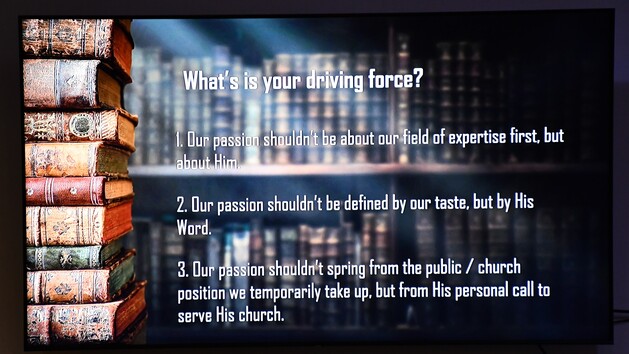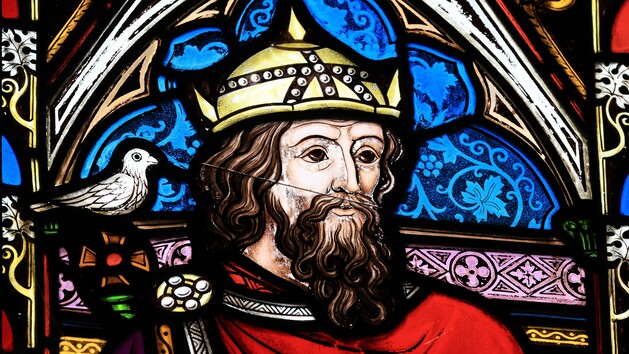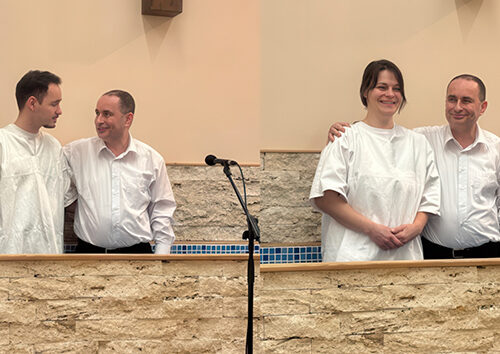7 May 2025 | Sagunto, Spain [Marius Munteanu with tedNEWS]
At the European Theological Teachers Convention (ETTC), held from 18 to 22 March on the campus of Sagunto Adventist College in Spain, scholars and church leaders gathered to explore the theme “Rethinking the Church in the Digital Age: Theological, Missiological, and Pedagogical Considerations.” In a keynote session, Marius Munteanu, Education Director for the Inter-European Division (EUD), urged attendees to reflect not only on the depth of their passion for ministry but also on its direction and purpose—passionate, yes, but for what? What follows is a summary of his presentation.
Among the many things I appreciate about the ETTC 2025 presenters and attendees is not primarily their knowledge—though they delivered outstanding presentations—but the driving force behind it. I am not most impressed by their diligent efforts—the time, energy, and even personal funds invested in topics that some might consider “boring”—but by the motive that fuels those efforts. What stands out is not merely their perseverance in addressing what research the Church should do, but the deeper motivation that sustains such commitment. There must be an irresistible motivation.
What is the justification behind it—something that goes beyond persistence and discipline? What keeps you awake into the night until you reach a specific insight or uncover surprising new parameters? I want to qualify that motivation, and I invite you to name it:
A deep and steady emotional and intellectual focus that strongly shapes a person’s thoughts and feelings, either through its powerful impact or its lasting influence. It shows up as a strong pull toward something, often with a genuine enjoyment of the subject being studied or the work being done.
An irrational, yet irresistible drive behind a belief or action.
So, what is this? What gives you the energy in your area of expertise? What truly animates you? Yes—that’s the answer: PASSION! The lecturers are passionate, as are the scholars, teachers, chaplains, pastors, and students. Are you passionate about what you are currently doing? If so, have you ever had the courage to recognise what defines your passion?
Passion for our field of expertise – or Jesus?

-
Our passion should not centre on our field of expertise first, but on Jesus.
First and foremost, our passion should be grounded in Jesus. ‘Philip found Nathanael and said to him, “We have found Him of whom Moses in the law, and also the prophets, wrote—Jesus of Nazareth, the son of Joseph.”’ (John 1:45, NKJV). This is not expressed merely by temperament. We have not simply found an idea or a discipline, but Jesus Himself. What should a passionate theologian look like? When he or she meets Jesus, their life is significantly changed.
2. Our passion should be shaped by God’s Word, not by personal preferences.
“For we are not, as so many, peddling the word of God; but as of sincerity, but as from God, we speak in the sight of God in Christ.” (2 Corinthians 2:17, NKJV)
3. Our passion should not arise from the public or church position we temporarily hold, but from His personal call to serve His cause—wherever and however that may be.
Oswald Chambers was a Scottish evangelist and educator. While fulfilling his duties as chaplain for the British Commonwealth forces in Egypt during the First World War, he experienced an onset of appendicitis, shortly followed by a pulmonary haemorrhage that ultimately resulted in his death on 15 November 1917, at the age of 43. In 1924, his wife, Gertrude, commenced the process of reviewing and editing numerous pages of stenographic notes that Oswald had meticulously compiled each time he delivered a sermon. Those notes became the basis for daily meditations, published collectively as My Utmost for His Highest (1927).
For 18 January, Chambers’ devotional reads:
“Be alert to anything that competes with your loyalty to Jesus Christ. The greatest rival to true devotion to Jesus is the service we do for Him. It is easier to serve Him than to pour out our whole life before Him. The purpose of God’s calling is to please Him, not just to do something for Him. We are not called to fight for God, but to be used by God in His battle. Are we more devoted to serving Him than we are to Jesus Christ?”
Ellen White also offers a sobering reflection in The Desire of Ages:
“As activity increases and men become successful in doing any work for God, there is danger of trusting to human plans and methods. There is a tendency to pray less and to have less faith. Like the disciples, we are in danger of losing sight of our dependence on God and seeking to make a saviour of our activity. We need to look constantly to Jesus, realising that it is His power which does the work.” (DA, p. 362)

No name in the history of literature, science, or religious revival during the Middle Ages is more illustrious or celebrated than that of Bede the Venerable (Latin: Beda Venerabilis). Born in the north of England, Bede is often called the father of British history, owing to his masterpiece, The Ecclesiastical History of the English Nation, published in 731 AD. At the time, it was the principal source of information about the English Isles.
As one of the greatest teachers and writers of the Early Middle Ages, Bede is considered the single most important scholar of antiquity for the period between the death of Pope Gregory I (604) and the coronation of Charlemagne in 800. His list of achievements would make any CV shine:
Introduced the use of Christian chronology (BC/AD)
Authored 45 volumes, including books, commentaries, and translations
Wrote hymns, grammar books, and poetry
Was fluent in Greek, Hebrew, and Latin
Mentored Bishop Egbert, who later became principal of the school at Charlemagne’s court in Aachen
Contemporaries described him in glowing terms: “His respect for those around him was evident in all he did, being kind and generous. His love of truth and accuracy, his sincere godliness, and his selfless devotion to serving others made him a most agreeable person.”
Bede closed his greatest work with these words: “Please, precious Jesus, as you have had mercy on me and allowed me to gladly absorb the words of your knowledge, in the same way, in your benevolence, grant me the privilege to finally reach You, the source of complete wisdom, and to dwell forever in your presence.”
In a digital age, our passion for Christ and His Word should remain the driving force behind all our endeavours—not diluted, but deepened—as the clearest and most convincing argument in favour of our faith and Church.
Featured image: Marius Munteanu, Education Director for EUD is giving his presentation at the European Theology Teachers Convention. [Photos: David Neal, and Shutterstock]



